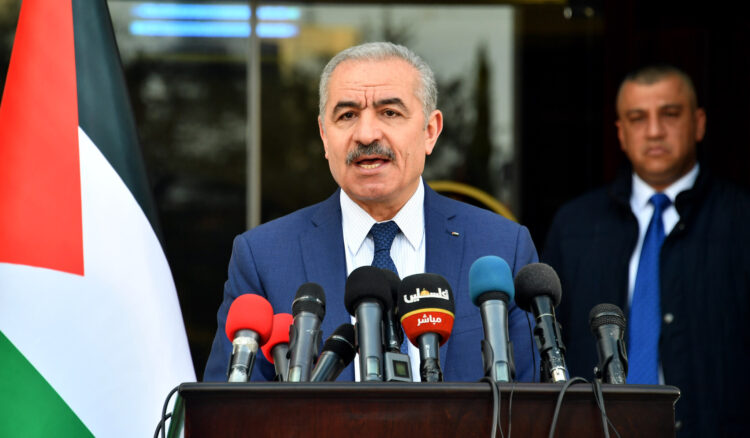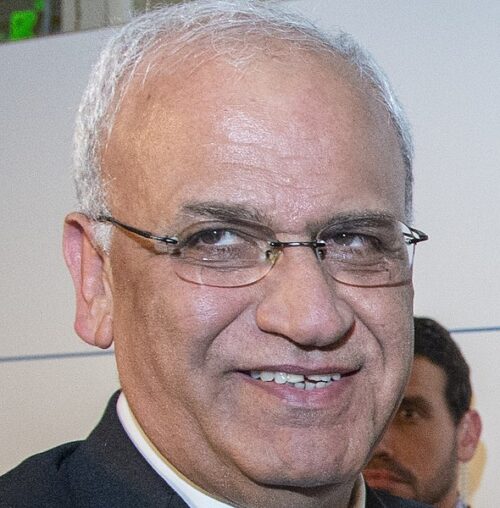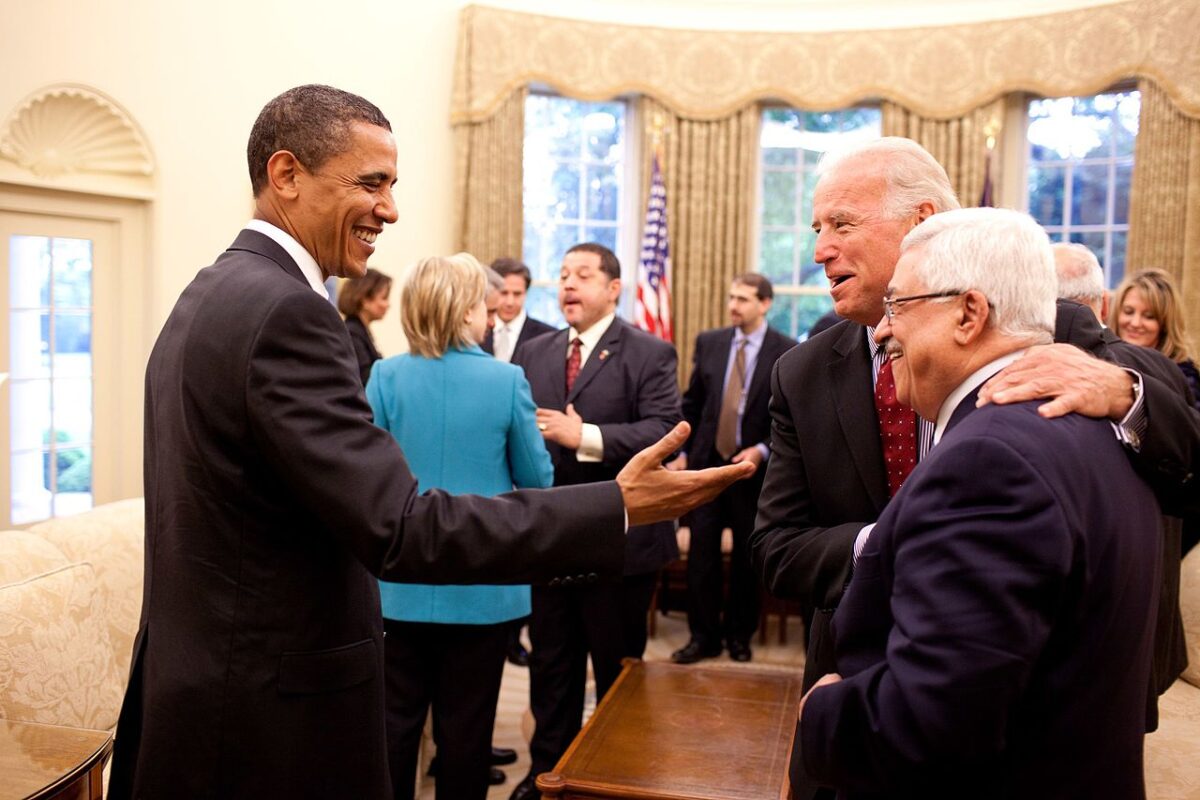The mainstream Palestinian leadership heaved a sigh of relief after Joe Biden defeated Donald Trump in the November 3 presidential election.
Under Trump’s presidency, the United States’ bilateral relationship with the Palestinian Authority sank to a new low, prompting the Palestinians to invest their hopes in a Biden presidency.
Although Trump has so far refused to concede, Biden is president-elect, and the Palestinians are hopeful that a new and promising era in their relations with the U.S. can begin following his inauguration on January 20.
Within a week of his victory, Palestinian Authority President Mahmoud Abbas sent Biden and Vice President-elect Kamala Harris a congratulatory message urging them to “strengthen” mutual ties and to strive for “peace, stability and security” in the Middle East.
Citing Abbas’ statement, the former head of the PLO mission in Washington, D.C., Hussam Zomlot, described the recent U.S. election as “historic and inspiring.”

The prime minister of the Palestinian Authority, Mohammad Shtayyeh, was just as effusive. In a tweet, he declared it is ready for “immediate engagement” with the United States so that a “just and lasting peace” can be achieved within the framework of a two-state solution and the end of Israel’s occupation of the West Bank. In addition, he expressed hope that the Biden administration would place Palestinian issues on its “list of priorities.”
The Palestinians are in an upbeat mood because Biden, unlike Trump, is unambiguously in favor of Palestinian statehood and strongly opposes Israeli plans to annex land in the West Bank. Trump’s peace proposal, released last January, envisaged a discontiguous Palestinian state in 70 percent of the West Bank, subject to stringent conditions, and allotted a whopping 30 percent of it to Israel.
The Israeli government accepted the proposal, though many Israeli settlers did not, and the Palestinians rejected it as well.
During three reelection campaigns, Israeli Prime Minister Benjamin Netanyahu promised to annex the Jordan Valley and Israel’s network of settlements and outposts in the West Bank. He suspended this plan in August in deference to the United Arab Emirates’ historic decision to normalize relations with Israel. Netanyahu, however, has not ruled out annexation, a source of great concern to the Palestinians.
In all likelihood, a Biden administration will shelve Trump’s peace proposal, which was dead on arrival upon presentation, and replace it with a more balanced document factoring in the vital interests of both Israel and the Palestinians.
This would mean that the United States would not endorse the Israeli annexation of more than a token percentage of territory in the West Bank, and that a Palestinian state would be more or less geographically contiguous.
If this scenario pans out, the finances of the Palestinian Authority might well improve. After concluding that Netanyahu was serious about annexing the Jordan Valley, Abbas announced he would no longer accept the transfer of hundreds of millions of dollars in taxes collected by Israel on its behalf.
As a result, basic services in Palestinian autonomous areas of the West Bank were reduced and the salaries of civil servants were cut.
Even if Abbas revises his position on taxes, he will face financial problems. Arab economic assistance to the Palestinian Authority budget decreased by 81 percent in the first eight months of this year.

Trump enraged the Palestinians by recognizing Jerusalem as Israel’s capital and transferring the U.S. embassy to Jerusalem. From that point onward, the Palestinian Authority essentially boycotted the Trump administration, dooming whatever peace process might have emerged during this period.
With Trump a lame duck president, the Palestinian Authority may eventually press Biden — the vice-president during Barack Obama’s presidency — to move the embassy back to Tel Aviv. It is a vain hope, Biden already having announced he will not alter the status quo. But the Palestinians will doubtless press him to reopen the U.S. consulate in eastern Jerusalem, which was folded into the American embassy. Until last year, the consulate functioned as the American diplomatic mission to the Palestinian Authority.

Biden is expected to break with Trump’s policy by resuming the flow of U.S. aid to the United Nations Relief and Works Agency, which assists Palestinian refugees throughout the region.
Biden, too, will probably allow the PLO mission in Washington to reopen. It was closed by Trump.
These concessions will still leave the Palestinians at a loss.
Until a few months ago, they could rest assured that no Arab state would normalize relations with Israel unless the Palestinian question was resolved with the framework of an Israeli withdrawal from the occupied territories and a two-state solution.
This pan-Arab consensus was shattered when the United Arab Emirates, Bahrain and Sudan officially recognized Israel and agreed to normalize ties with it without demanding a resolution of the Palestinian problem. This left the Palestinians livid and isolated. In a further blow, the Arab League declined to pass a resolution condemning their respective peace agreements with Israel.

“We definitely feel betrayed,” said chief Palestinian negotiator Saeb Erekat, who died a few days ago. In his view, these accords encourage the Israeli government “to continue its occupation” of the West Bank.
The Palestinians will be better off politically now that Trump is on his way out and Biden is preparing to supplant him. But Trump’s presidency, together with Israel’s rapprochement with the United Arab Emirates, Bahrain and Sudan, definitely placed the Palestinian Authority at a disadvantage vis-a-vis Israel.
From this point forward, the Palestinians will try to make up for lost ground. But it remains to be seen what meaningful concessions they will be able to wrest from Biden during his presidency.
